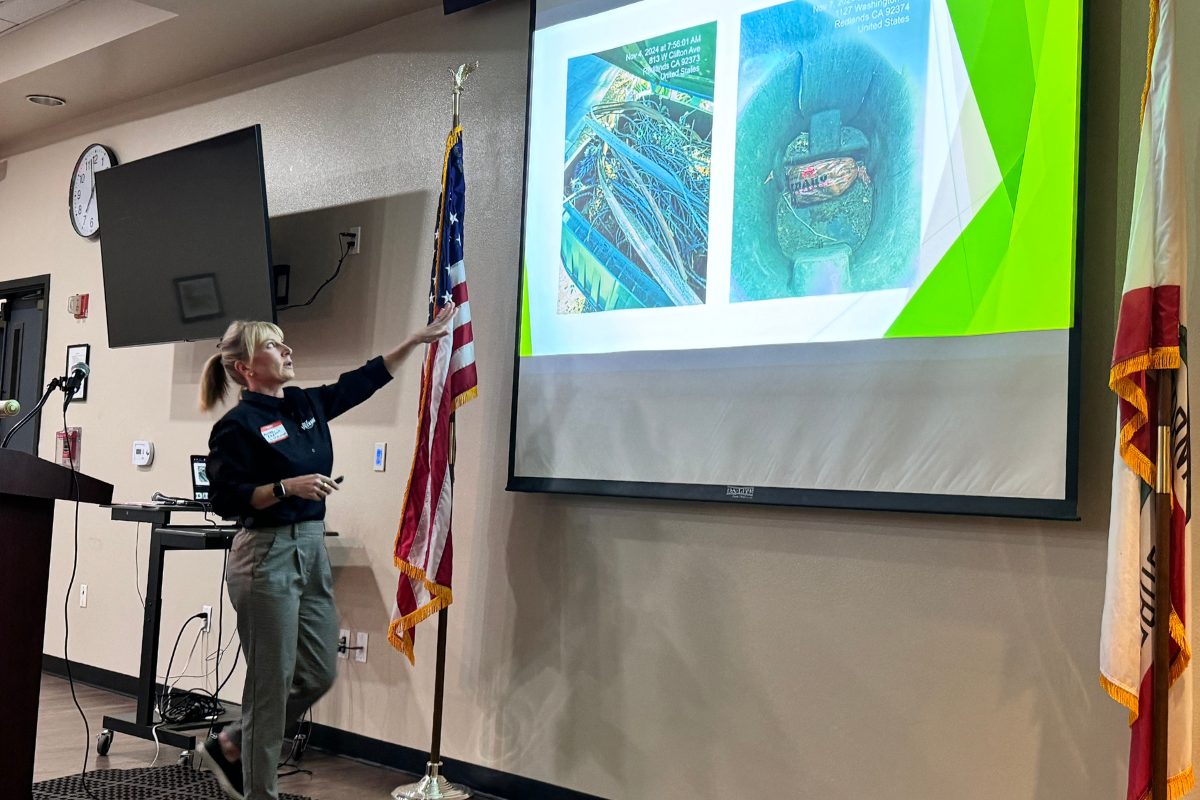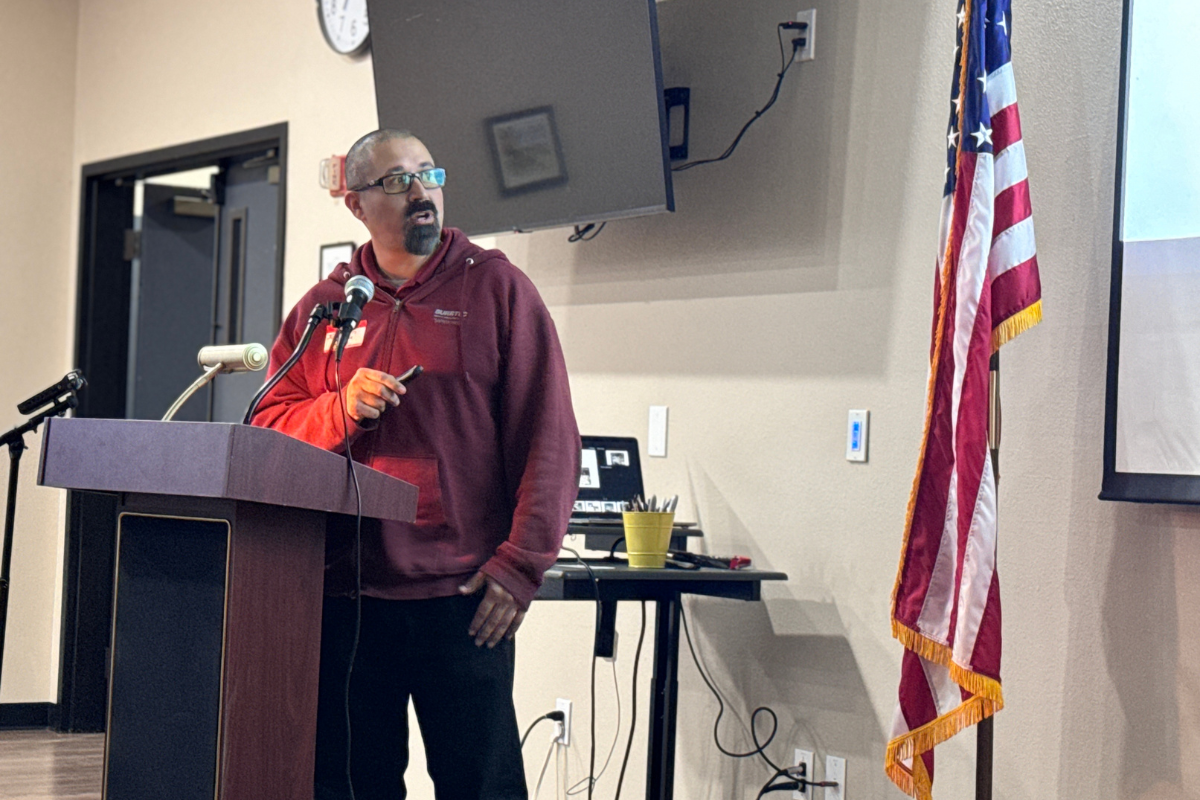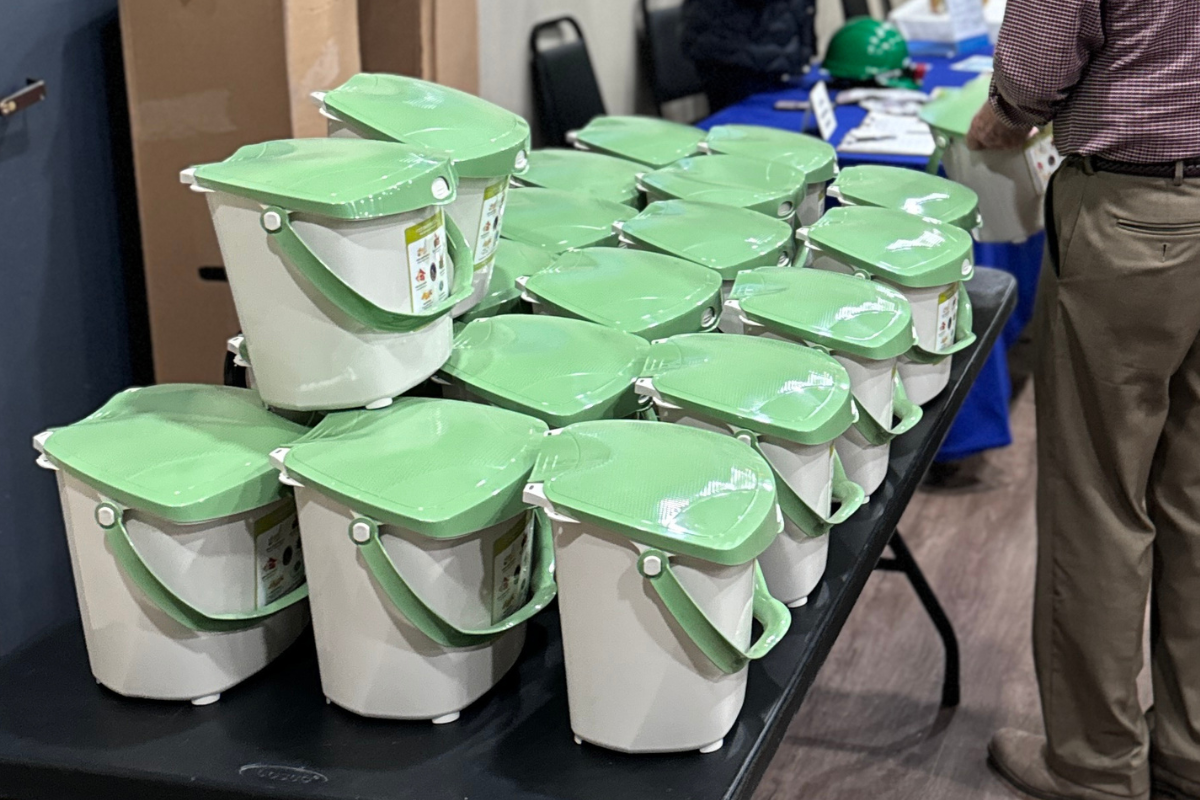Bug-inspired fun returns to Redlands with Arthropolooza: The Ultimate Bugfest
March 29 and 30 from 11 a.m. to 4 p.m.
Residents seek clarity on waste disposal as city works to improve communication at community meeting presented by ANCA

REDLANDS, Calif. — Redlands residents continue to grapple with uncertainty about proper recycling practices despite the city's ongoing education efforts. At a recent community meeting, attendees voiced concerns and sought clarification on various waste disposal issues, from food scraps to broken glass.
Karee Keyser, recycling coordinator for the city of Redlands, addressed the gathering, emphasizing the importance of proper waste sorting in light of Senate Bill 1383, which aims to reduce methane emissions by keeping food waste out of landfills.
SB 1383 was signed in 2016 and went into effect on January 1, 2022. Keyser explained, "the whole purpose is to keep food waste out of landfills, to turn it into compost, mulch, and recycle it."
She advised residents to put food scraps directly into their green waste bins without using bags.
However, residents expressed confusion about the practical implementation of these guidelines. One attendee raised concerns about the disposal of food scraps in green waste bins, citing issues with odors and fruit flies.
"When I get them filled up with the food scraps, I come outside to my green waste container and I dump a bunch of rotting slop into it, which then sticks," the resident said. "I come out the next day, and there are flies and fruit flies all over the inside – which are a terrible pest around here."
Keyser acknowledged the concern but noted that the city's current processor, One Stop, which is unable to accept bagged food waste, is the city's best financial option.
This limitation has led to challenges for residents trying to manage organic waste disposal effectively.
As part of the law, Keyser conducts random 'lid flipping' inspections to identify items that do not belong in the recycling or green waste bin. If she finds a violation, she provides residents with an "oops tag."

Some examples of contamination in the green waste bin include bags of any kind (even organic), coffee filters, animal waste, plastic cartons and plastic gardening pots.
Keyser said avoiding contaminates in green waste is important because it is turned into mulch that is available to residents for free. "We all need to do our part to make a clean product."
Right now, Keyser is focused on education and said penalties for putting organic food waste into the garbage bin are not being enforced yet.
Many multi-family residents in Redlands still lack access to curbside organic waste recycling, but the city is actively working to address the issue, Keyser said.
Efforts include determining whether properties will receive a green cart, which requires curbside placement for collection, or a tan cart, serviced by a separate truck for an additional fee.
While the rollout for single-family homes incurred no financial impact, implementing the program for multi-family properties involves logistical and cost considerations. "We are working with property managers to find the best solutions," Keyser assured, emphasizing the city's commitment to expanding the program.
The meeting also highlighted confusion surrounding the recycling of various household materials. One attendee asked about the proper disposal of broken glass.
Joaquin Flores, manager of the Burrtec materials recycling facility in San Bernardino, advised that broken glass can be placed directly in recycling bins without additional packaging. "There's no need to package it or put it in another bag," Flores said.

Other items that can be placed directly into the recycling bin include plastic bottles and jugs numbered 1 -7, styrofoam, glass jars and bottles, aluminum and metal cans, and paper products like magazines, flattened cardboard, and milk or juice cartons.
And items like laundry detergent jugs, milk cartons, or yogurt cups do not need to be rinsed, Flores explained, because all the items are washed during the recycling process.
The discussion revealed a widespread desire for clearer guidelines on recyclable items. One resident suggested, "It would be helpful to have a list of things that go into recycling and things that do not."
Keyser responded that such information is available on the city's website and through her series Talking Trash but acknowledged the apparent need for improved communication.
Free food scrap kitchen bins were available for residents to take home.

The meeting also touched on broader issues of waste reduction and sustainability. Dick Corneille, president of the board of directors for Accelerate Neighborhood Climate Action (ANCA), emphasized the need to move away from the current linear economy, which results in production, use, and waste. He presented the concept of a circular economy.
Adoption of habits like reuse, repair, recycling, and reduced consumption would improve sustainability and reduce waste, Corneille noted.
The meeting underscored the complexity of waste management issues and the ongoing challenges in achieving widespread compliance with recycling guidelines.
As Redlands continues to adapt to new state regulations and environmental goals, improved communication and education remain key priorities in fostering a more effective recycling culture within the community.
Links to what can be placed in each curbside bin can be found here:
Here's a full list of what's okay to recycle with Burrtec Waste Industries Inc.
Sign up for our weekly newsletter